Sweelinck Studies: Exploring New Approaches
20-22 October 2021, Amsterdam
Call for papers
International conference
Orgelpark, Amsterdam
Jan Pieterszoon Sweelinck is generally regarded as the greatest musician the Netherlands ever produced. On the occasion of the 400th anniversary of his death (16 October 1621), the IMS, Orgelpark and KVNM are organizing a three-day symposium to explore new approaches in Sweelinck studies. The symposium organisers explicitly aim to put Sweelinck in the context of his time and encourage scholars to contribute on one of the three themes:
- Cultural entrepreneurship in early seventeenth-century Amsterdam;
- Amsterdam psalm production in the period 1580-1620;
- The relationship between notated music and improvisation.
All three themes also invite consideration from a broader, international perspective, as befits a composer who was one of the most European, cosmopolitan artists of his time.
Cultural entrepreneurship in early seventeenth-century Amsterdam
Without a significant court culture and without a church as a potential employer, artists in the young Republic of the Seven United Provinces were largely deprived of a permanent income. As a city organist, Sweelinck was a favourable exception, but even this position did not provide an adequate salary. Many of those in cultural professions had to rely on a multitude of activities to generate an income; in a sense, they needed to be active as cultural entrepreneurs. What was the collaboration between the creative industry and cultural entrepreneurs in early seventeenth-century Amsterdam like – also in comparative perspective with other European cities? Which local conditions influenced the creative process and what was the position of individuals in it? How did painters, poets, sculptors, musicians and others working in the cultural industries provide themselves with an adequate income? How did this process take place during various stages of their working life? And, most of all, how does Sweelinck fit into this picture?
Amsterdam psalm production in the period 1580-1620
From the moment the Calvinistic psalms, in their final form known as the Genevan Psalter, were brought into circulation, compositions – both vocal and instrumental – appeared in which the Genevan melodies were incorporated. Polyphonic settings could not play a role within the Calvinist church, since only monophonic, unaccompanied psalm singing was allowed there. These settings were therefore used in circuits outside the church. In order to place Sweelinck’s psalm production in context it is necessary to understand the role the psalms played in all layers of society. Book printers, especially in Amsterdam, brought out countless editions with the psalm texts both in their French original form and in Dutch and German translations, usually accompanied by the Genevan melodies. Sweelinck’s psalms were not only printed with their original French texts, but also in German translation (Berlin), and they were even provided with Rhaetian psalm texts in Switzerland. Many settings were meant for vocal performance, others for organ and sometimes also for lute (both solo and as accompaniment for vocal performance). Is a musical development visible in the polyphonic arrangements of the psalms in the relatively short period from 1580 to 1620 in which Sweelinck’s editions of 1604, 1613, 1614 and 1621 can be placed? What effect did psalm production have on Amsterdam’s cultural industry and to what extent can Sweelinck’s psalms also be interpreted as an expression of this industry? And how do they relate to Genevan psalm settings by his predecessors like Goudimel and Le Jeune, his contemporaries such as Hans Leo Hassler, or his pupil Paul Siefert, whose psalms were composed in explicit emulation of those of his master?
The relationship between notated music and improvisation
Common sense has it that improvisation precedes composition – and that it always has been that way. Yet, Sweelinck’s highly developed keyboard art invites to rethink the way improvising, composing and music-making interrelate, at least in his time. Are his scores for keyboard something like recipes, that is an invitation to identify and perform an ideal version of the music hidden in them? Or are they mnemonic devices, functioning as aids to remember a convincing musical discourse, one that one might wish to play again and/or use as educational material. Furthermore, if the latter is true, would the term ‘improvisation’, as in ‘making music on the spot, without a score’ actually fit Sweelinck’s music-making practice? For example, access to the organ was very limited; he and his students must have mainly practiced at home on the virginal or the harpsichord. Addressing these and related questions may help to shed new light on how to make music based on Sweelinck’s scores, both at the keyboard and with an ensemble, the latter certainly also encompassing the human voice. And from this vantage point, the relationship between Sweelinck’s music and contemporary European culture can be fruitfully reappraised.
Keynote speakers :Claartje Rasterhoff, assistant professor cultural policy & management at Maastricht University; project leader culture monitor at Boekmanstichting ; Rudolf Rasch, emeritus associate professor of musicology at Utrecht University ; Michael Beckerman, professor at NYU College of Arts and Science
Call for Papers :
We invite scholars from musicology and related fields (e.g., cultural history, art/book history, urban history) to contribute to one of these three themes. Proposals for individual papers (for 20 minutes, followed by 20 minutes of discussion), should include:
- The presenter’s name, affiliation and email address
- A concise abstract (maximum 300 words)
- Short biography (maximum 150 words)
Please submit proposals to Simon Groot, s.h.groot@uva.nl, before March 15, 2021.
The official conference language is English, but contributions in Dutch, German or French are also welcome.
Programme committee :Thomas Delpeut MA (KVNM, Radboud University) ; Dr Pieter Dirksen (Sweelinck 2021); Prof.dr Hans Fidom (Orgelpark, VU University) ; Dr Simon Groot (Sweelinck 2021, University of Amsterdam, Utrecht University)
Organised in cooperation with International Musicological Society (IMS), Orgelpark Amsterdam and Royal Society for Music History of the Netherlands (KVNM).
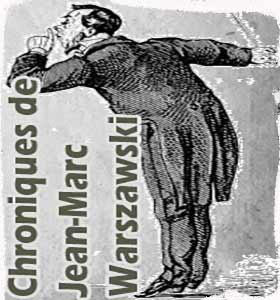
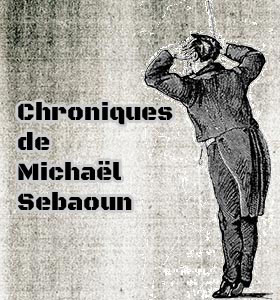
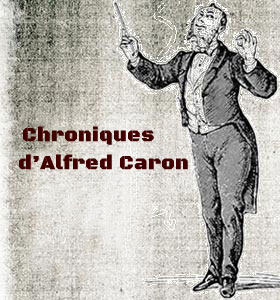
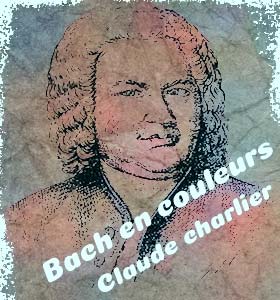
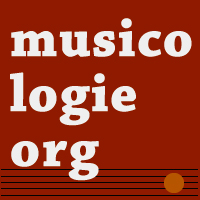 À propos - contact |
S'abonner au bulletin
| Biographies de musiciens | Encyclopédie musicale | Articles et études | La petite bibliothèque | Analyses musicales | Nouveaux livres | Nouveaux disques | Agenda | Petites annonces | Téléchargements | Presse internationale | Colloques & conférences | Collaborations éditoriales | Soutenir musicologie.org.
À propos - contact |
S'abonner au bulletin
| Biographies de musiciens | Encyclopédie musicale | Articles et études | La petite bibliothèque | Analyses musicales | Nouveaux livres | Nouveaux disques | Agenda | Petites annonces | Téléchargements | Presse internationale | Colloques & conférences | Collaborations éditoriales | Soutenir musicologie.org.
Musicologie.org, 56 rue de la Fédération, 93100 Montreuil. ☎ 06 06 61 73 41.
ISSN 2269-9910.

Vendredi 24 Janvier, 2025

